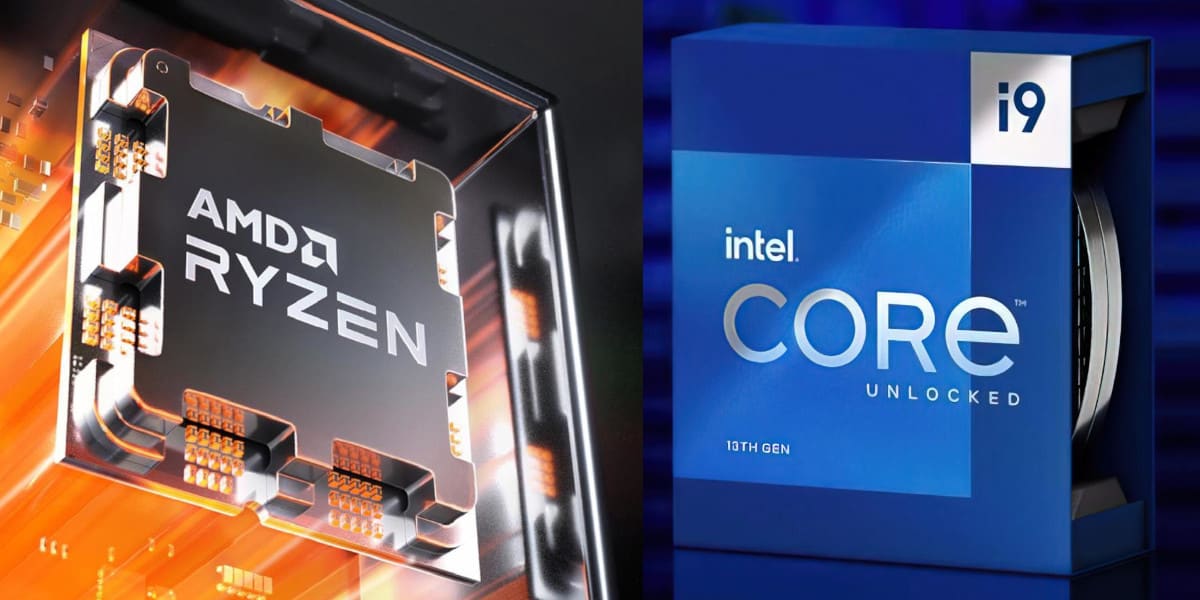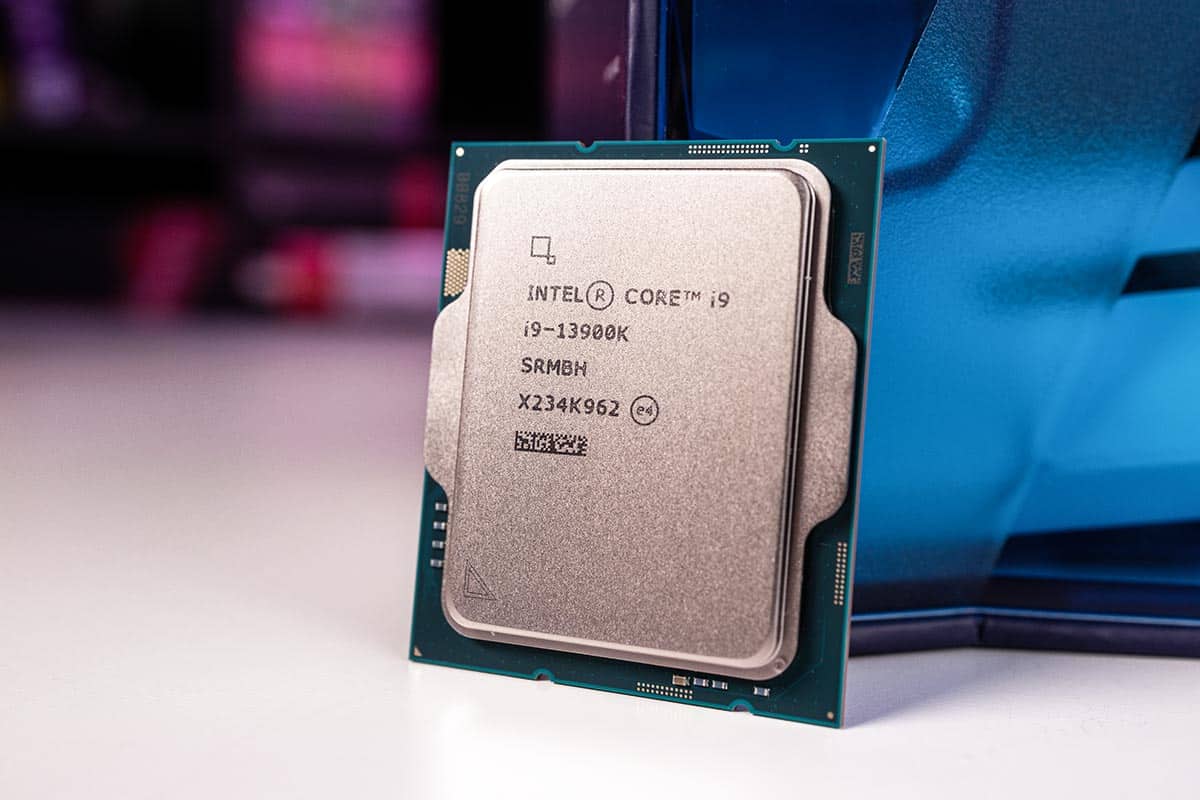Intel Core i9-13900K vs AMD Ryzen 9 7950X

Table of Contents
The battle of Intel Core i9-13900K vs AMD Ryzen 9 7950X has reached maximum velocity, as the leading Raptor Lake processor has just been released. With that said, how exactly does the latest flagship from team blue measure up against the recently released front-runner from the red corner?
We're comparing Intel Core i9-13900K vs AMD Ryzen 9 7950X on more than just the specs, though. We will also be looking at the pricing differences, motherboard support, performance, and longevity of each processor generation to help you make an informed decision.
Quick Links
- Intel Core i9 13900K | $689.99 at Best Buy
- Intel Core i9 13900K | $659.99 at Newegg
- Intel Core i9 13900KF | $629.99 at Newegg
- AMD Ryzen 9 7950X | $699.99 at Best Buy
- AMD Ryzen 9 7900X | $549.99 at Best Buy
Intel Core i9-13900K vs AMD Ryzen 9 7950X: specs
Below we've compiled the specs between the latest from both teams red and blue in an easy-to-read format.
| Intel Core i9-13900K | AMD Ryzen 9 7950X |
| 24-core (32 threads) | 16-core (24 threads) |
| LGA 1700 socket | AM5 socket |
| 3.0 GHz (base clock); 5.8 GHz (boost clock) | 4.50 GHz (base clock); 5.7 GHz (boost clock) |
| 125W TDP | 170W TDP |
There are a lot of similarities between the two CPUs, but also some key differences, too. In particular, the base clock speeds show the biggest difference. The Raptor Lake processor runs a little slower out of the gate when compared to the Zen 4 flagship.
Things are flipped on their head, though, when considering the boost clocks, as the 13th Gen Intel i9 pulls ahead ever so slightly ahead of the newest R9 CPU. This is likely due to the fact that both the P-cores and E-cores both maxed out.
Intel Core i9-13900K vs AMD Ryzen 9 7950X: price analysis
The i9-13900K is selling for $660 as of October 20. By contrast, the 7950X has been available for the past few weeks and currently retails for $699. As their respective premium models in the generation, there isn’t a huge discrepancy in price, with team blue only slightly sneaking it. If you're after a cheaper model, then Intel takes the victory here.
If we look at the previous Alder Lake generation, prices have actually remained identical between releases. In comparison, there was actually a decrease of $100 between the Zen 3 to Zen 4, which is a good consumer practice on AMD's part.
While still prohibitively expensive, the latest Ryzen 9 frontrunner is 12.5% cheaper than its predecessor from two years prior. The main trade-off here, though, is that you'll need an AM5 motherboard, which is currently quite pricey, not to mention being locked exclusively to DDR5 RAM.
A potential cost-saving measure here could be to invest in an i9-13900K with DDR4 RAM instead, as, depending on your motherboard, you could always slot in DDR5 RAM later on down the line. Whether the benefits outweigh the costs is ultimately going to come down to performance, which we'll touch on later.
Intel Core i9-13900K vs AMD Ryzen 9 7950X: performance comparison
Now that the Intel Core i9-13900K has officially been released, we’ve got our hands on the benchmarks courtesy of our colleagues over at WePC. The sister site’s Intel Core i9-13900K review has granted us insight into exactly how the newest model compares to the best of Ryzen, and the results speak for themselves.
We have a direct comparison between the i9-13900K and the Ryzen 9 7900X. While not exactly the same processor, it gives us a good general indication of how it stacks up to the bleeding-edge processor. This is most evident in the synthetic benchmarks produced by industry-standard tests including CPU Z, Cinebench R23, and Geekbench alongside in-game testing.
For reference, the Intel Core i9-13900K scored 933, 2288, and 2244 in the aforementioned programs in respective order in single-core performance testing. By comparison, the AMD Ryzen 9 7900X tallied up 789.1, 2022, and 2259 when put through the same process. This gives us a rough performance increase from the former of 13.15% if we take Cinebench R23 as the average.
The multicore performance demonstrates that the difference is more significant. The Intel Core i9-13900K racked up 16812, 38951, and 25102. In contrast, the Ryzen 9 7900X produced figures of 11827.7, 28379, and 18720. As is evident, the numbers are dramatically lower with the high-end Zen 4 CPU. Taking an average gives us a percentage disparity of approximately 37.25%.
Some outlets, such as Forbes, have also contrasted the two processors against each other, too. The synthetic benchmarks, most notably Cinebench R23, showcased the Intel Core i9-13900K does outperform the Ryzen 9 7950X in single and multi-core performance. The site published figures of 2246 for the former and 2050 for the latter. That’s a difference of 9.56%.
The margins between the two flagship processors are considerably smaller, but team blue does pull ahead. Further evaluating the multi-core performance published that the i9-13900K achieved 40444 with the 7950X managing 38422. That’s a performance difference of 5.26%. What can we learn from this? There ultimately isn’t much in the difference, but Intel pulls ahead here.
Which is better – 13900K or 7950X?
From a pure performance point of view, it’s looking as though the Intel Core 13900K takes the lead, if ever so slightly, in the race with the AMD Ryzen 9 7950X. In terms of the pricing available at launch, the differences are pretty thin all told. There’s a price difference of $39. Things are very close on all fronts, so it’s largely going to come down to preference.
Do you want an AM5 socket system that could support future Ryzen processor generations, or are you after the cutting-edge from Intel knowing that LGA 1700 socket is being replaced next year? That’s the kind of question you need to ask yourself as there’s no definitive right or wrong answer when all is said and done.
- Read more about Intel 13th Gen


